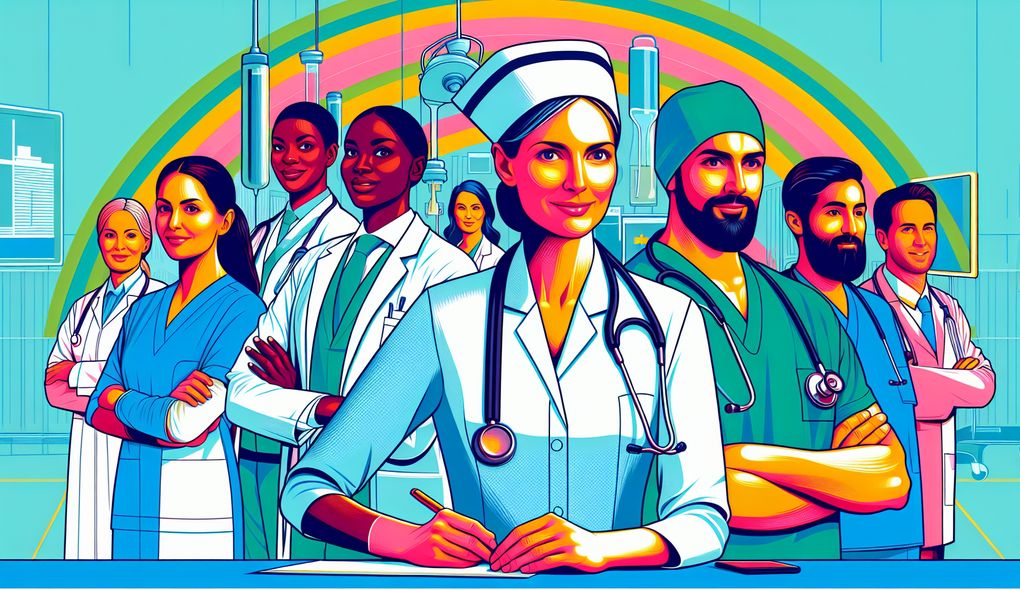Have you ever encountered a conflict with a healthcare team member? How did you resolve it?
JUNIOR LEVEL

Sample answer to the question:
Yes, I have encountered a conflict with a healthcare team member before. It happened when we were working on a particularly challenging patient case. We had differing opinions on the best course of action and this led to tension and disagreements. However, we were able to resolve the conflict by holding a team meeting to openly discuss our concerns and perspectives. We listened to each other's viewpoints, asked clarifying questions, and worked towards finding a middle ground. Ultimately, we realized that our main goal was to provide the best care for the patient, and we were able to come up with a comprehensive care plan that incorporated everyone's input. This experience taught me the importance of effective communication, active listening, and collaboration within a healthcare team.
Here is a more solid answer:
Yes, I have encountered a conflict with a healthcare team member before during my previous role as a registered nurse. We had differing opinions on how to manage a complex patient case, which resulted in disagreements and tension within the team. To resolve the conflict, I took the initiative to schedule a team meeting where we could openly discuss our concerns and perspectives. During the meeting, I encouraged active listening and created a safe space for everyone to express their viewpoints. We realized that our ultimate goal was to provide the best possible care for the patient, so we focused on finding common ground. Through effective communication and collaboration, we were able to develop a comprehensive care plan that incorporated everyone's input. This experience taught me the importance of leveraging problem-solving abilities, leadership qualities, and coordinating with a healthcare team to resolve conflicts and achieve optimal patient outcomes.
Why is this a more solid answer?
The solid answer expands on the basic answer by providing specific details about the conflict situation and how the candidate took initiative to resolve it. It highlights the candidate's problem-solving abilities, leadership qualities, and ability to coordinate with a healthcare team. Additionally, it emphasizes the importance of achieving optimal patient outcomes, which aligns with the responsibilities of a Clinical Nurse Leader. However, the answer could further discuss the candidate's time management and organizational skills in handling the conflict situation.
An example of a exceptional answer:
Yes, I have encountered a conflict with a healthcare team member before during my role as a Clinical Nurse Leader. The conflict arose when our team was faced with a challenging patient case that required immediate intervention and coordination. As the team leader, I recognized the importance of addressing the conflict promptly to maintain a cohesive and efficient workflow. To resolve the conflict, I initiated a meeting with the involved team members to understand their concerns and perspectives. I ensured that everyone had a chance to voice their opinions, and I actively listened to their suggestions. Through effective communication and negotiation, we identified common ground and developed a collaborative care plan that addressed the patient's needs. Additionally, I utilized my excellent time management and organizational skills to create a timeline for implementing the care plan and monitoring its effectiveness. This conflict resolution experience not only strengthened the team's cohesion but also enhanced our ability to adapt to change and deliver patient-centered care. It taught me the importance of being an empathetic and compassionate leader while maintaining a focus on optimal patient outcomes.
Why is this an exceptional answer?
The exceptional answer provides a comprehensive and detailed account of the conflict resolution process, highlighting the candidate's role as a Clinical Nurse Leader. It demonstrates their ability to effectively lead a team and address conflicts promptly and proactively. The answer also emphasizes the candidate's strong problem-solving abilities, excellent time management and organizational skills, and their adaptability to evolving healthcare practices. Furthermore, it highlights their dedication to patient-centered care and their compassion as a leader. This exceptional answer aligns closely with the skills and qualities required for the clinical nurse leader role.
How to prepare for this question:
- Reflect on past experiences: Think about any conflicts or disagreements you have encountered in a healthcare team setting and how you resolved them. Consider the outcomes and lessons learned from these experiences.
- Highlight relevant skills and qualities: Identify the skills and qualities listed in the job description that are essential for conflict resolution. Prepare examples that demonstrate your competency in these areas.
- Emphasize patient-centered care: Showcase how your conflict resolution approach always prioritizes the needs and well-being of the patients and contributes to improved patient outcomes.
- Practice active listening: Develop active listening skills to understand different viewpoints and create a collaborative environment for conflict resolution.
- Stay updated on healthcare practices: Stay informed about current healthcare practices and be prepared to discuss how you adapt to changes in the healthcare industry.
What are interviewers evaluating with this question?
- Problem-solving abilities
- Leadership qualities and ability to coordinate with a healthcare team
- Excellent time management and organizational skills
- Adaptability and openness to change as healthcare practices evolve

